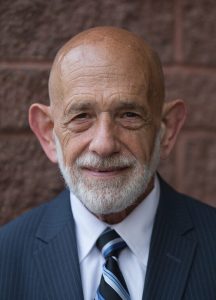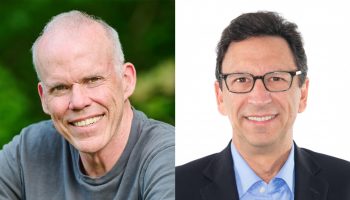Robert A. Levy knows that Americans have a lot of misconceptions about libertarianism.

“Most people think libertarianism is synonymous with conservatism, which it is not,” he said. “Libertarians tend to be conservative on some issues, and they tend to be the fiscal issues: taxes, regulations, spending — but we are very liberal on other issues, things like marriage equality, drug legalization, liberalized immigration policy, civil liberties and, certainly, a non-interventionist foreign policy.”
While these party-crossing beliefs lead critics to call libertarians ideologically inconsistent, Levy argues the opposite.
“Conservatives want less government, except in your bedroom, and the liberals want more government, except in your bedroom,” he said. “Libertarians are quite consistent in wanting small government across the board. We want a government that stays out of our wallet and stays out of our bedroom and stays out of foreign entanglements, unless our vital interests are at stake.”
Levy is a Constitutional scholar, former Georgetown University law professor and chairman of the board of directors at the Cato Institute, a liberterian think-tank headquartered in Washington D.C. He will be speaking as part of Week Eight’s Chautauqua Lecture Series theme, “Reframing the Constitution.”
His talk, “The Founding Fathers’ Vision” will air at 10:45 a.m. EDT Wednesday, Aug. 19, on the CHQ Assembly Video Platform.
In a week centered around the Constitution and its potential reformation, Levy will argue that the reform needed is not further distance from, but a return to, the framers’ original limited-government intentions.
“I’m going to talk about how the U.S. Constitution should be interpreted,” he said. “And I’m going to argue that the Supreme Court has occasionally subverted the original design, and I will recommend a few steps that I think are necessary to restore Constitutional government.”
Levy will discuss the two main schools of thought when it comes to interpreting the Constitution: textualism, favored by conservative judges, and the living Constitution, more commonly used by liberals. Levy is a practitioner of textualism.
“The conservatives believe that the words in the document tell us how the document ought to be interpreted,” he said. “And the liberals believe that the Constitution is this evolving document and you can pretty much disregard the words and make sure that (it) conforms to changing cultural, technological, social (and) political happenings over time.”
Over the last 200 years, a succession of Supreme Court decisions have expanded the power and reach of the federal government, in what Levy calls a “bastardization” of the Founding Fathers’ original intentions.
“It did not happen in one fell swoop; it evolved over time as a result of a number of different cases and culminated with the New Deal under the Roosevelt administration and the Court at the time,” he said. “Now we have the federal government involved in everything from health care to education, to welfare to housing, to aid to the arts.”
For Levy, the Founding Fathers’ vision is most clearly laid out in the last two amendments in the Bill of Rights.
“The 10th Amendment specifically says the federal government only has the powers that are enumerated (in the Constitution),” he said. “The Ninth Amendment is just the reverse; it specifically says that individuals have a broad list of rights, those that are enumerated in the Constitution, … but also rights that are not enumerated, rights that we had before the (it) was written, before the government was even formed, and that we still retain.”
For this reason, Levy believes that through the libertarian view of government, Americans can most clearly see the America the founding fathers hoped for.
“That was the framing intention; that we would have a broad panoply of rights, but the government would have very limited power,” he said. “We, libertarians, believe in a very broad list of rights, and a strictly limited list of governmental powers.”
This program is made possible by the John M. Wadsworth Lectureship on Free Market and Libertarian Principles.




